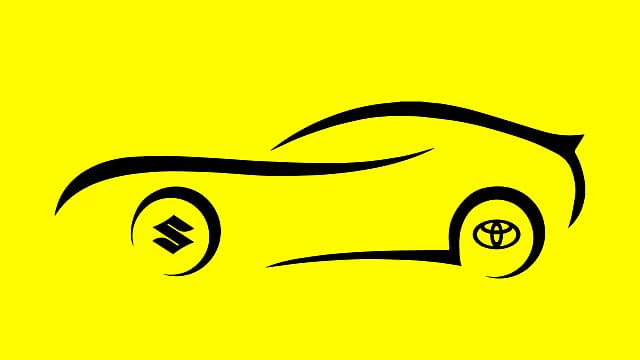Toyota to make cars for Suzuki
ADVERTISEMENT

Toyota Kirloskar Motors (TKM) will produce models developed by Suzuki Motor Corporation for sale in India.
The move is part of a cross-badging deal between Toyota Motor Corporation and Suzuki Motor Corporation which was announced in March this year. As part of the deal, the companies will manufacture vehicles for each other in the Indian market and use each other’s sales networks to advance cooperation in logistics and services.
Models developed by Suzuki and TKM, a joint venture of Toyota and the Kirloskar group, in India will also be used to tap Africa and other markets by employing their combined network strength, according to a statement released by Toyota on Friday.
“Toyota, along with Suzuki, will do its best to enhance freedom and fun in a future society of mobility and to make ‘Make in India’ vehicles cherished in Africa and in many other countries around the world,” Toyota president Akio Toyoda said in the statement.
Cross-badging is a practice in the auto industry where the same car is sold with some cosmetic changes under a different brand name. For instance, Nissan Micra and Renault Pulse are basically the same products. So are Volkswagen's Vento and Skoda Rapid. Auto makers do this to boost sales or to expand into a different market segment.
As a part of this partnership, Suzuki will supply its premium hatchback, Baleno, and compact sports utility vehicle Vitara Brezza to Toyota and Toyota will supply its executive sedan, Corolla, to Suzuki. The deal will help Toyota in strengthening its presence in the small car market and help Suzuki to expand its product range to executive sedan segment.
There are those who are not convinced by the strategy. “What I understand is that Indian consumer is looking for variety and uniqueness,” said Sridhar V, partner, Grant Thornton India.
“Rebadging, or cross-badging, is done with the intention of bringing in a little bit of uniqueness. It adds one more variety into the scenario available for the consumer but at a lower cost of introduction by the company. I don’t see it replicating in terms of success in India. One always does better than the other. So, whether it will be better sales for Toyota or Suzuki remains to be seen because both have picked up the best models.”
Since signing the memorandum of understanding for the partnership on February 6, 2017, Toyota and Suzuki have been exploring other domains for collaboration. There are talks between automotive components manufacturer Denso Corporation and Toyota for providing Suzuki with technological support for a compact, ultrahigh-efficiency power train to be developed by Suzuki.
“We will receive support for the development of a compact, ultrahigh-efficiency powertrain that is vital to Suzuki, and we will focus our utmost efforts on development. It is my hope that the new joint projects will contribute to the future success of both companies, not only in India, but also in the global market,” Suzuki Chairman Osamu Suzuki said.
Last year, Toyota and Suzuki also agreed for a joint structure for the introduction of electric cars in India in 2020. Suzuki will undertake the manufacturing, and supply some units to Toyota, which will provide technical support.